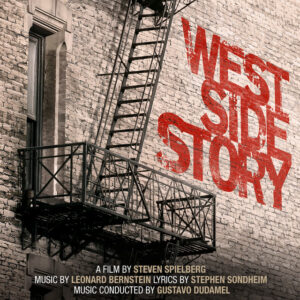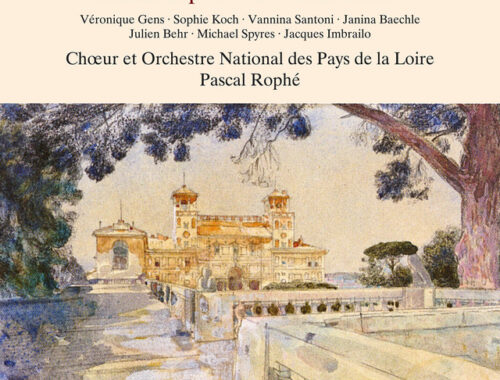GRAMOPHONE: From Where I Sit – April 2022
 I never need much of an excuse to write about Leonard Bernstein – but in the wake of the Spielberg remake of West Side Story (doubtless laden with awards by the time these words are published) I wanted to reflect on the perennially thorny issue of stage-to-screen, of theatre versus cinema, of in-the-moment versus forever. I admired the Spielberg (who couldn’t acknowledge the care lavished upon it) but it didn’t excite me. I confess bias. Like Bernstein himself I am a man of the theatre. Like Sondheim, the play’s the thing. The only filmed musical that I would hold up as an advance on the original show is Robert Wise’s The Sound of Music.
I never need much of an excuse to write about Leonard Bernstein – but in the wake of the Spielberg remake of West Side Story (doubtless laden with awards by the time these words are published) I wanted to reflect on the perennially thorny issue of stage-to-screen, of theatre versus cinema, of in-the-moment versus forever. I admired the Spielberg (who couldn’t acknowledge the care lavished upon it) but it didn’t excite me. I confess bias. Like Bernstein himself I am a man of the theatre. Like Sondheim, the play’s the thing. The only filmed musical that I would hold up as an advance on the original show is Robert Wise’s The Sound of Music.
But let me put some flesh on this argument. For all its potential for stylisation film is a realistic medium and it needs to reflect changing attitudes even as it embraces bygone times. But there’s an awful lot of new dialogue in Tony Kushner’s undeniably excellent ‘screenplay’ and to me it felt disproportionate to the musical elements. Proportions are everything in musicals, especially one as great as WSS. I vividly remember talking to Bernstein about this very matter in relation to Candide and he was adamant that all the show’s problems began because Lillian Hellman’s wordy book didn’t recognise or understand how the music – that is the songs and dance episodes – advances the narrative as surely as the words.
Spielberg’s movie is full of details – so much detail in production numbers like ‘America’ – that they are frankly a distraction from the physical and verbal excitement of what is being sung and danced. And will someone tell me why, having engaged Gustavo Dudamel and the New York Philharmonic for the gig, they sounded so low in the sound mix, so lacking immediacy and impact? Opting primarily for the original band orchestrations (albeit with some elaboration across a larger canvas) didn’t really pay off. It is well known that Lenny didn’t care for the super-charged and far denser orchestrations of the 1961 film (for which Johnny Green joined forces with the original orchestrators Irwin Kostal and Sid Ramin) but my goodness they packed a punch.
But I suppose all of this debate ultimately comes down to our definition of the word ‘Theatre’. When we speak of Bernstein’s theatricality we see him on the podium in the moment, his emotional and physical response to the music writ large and infectiously communicated in every gesture. But theatricality defines his music too and virtually every note he wrote only truly and completely comes alive in the heat of performance.
Bernstein, Sondheim, Laurents and Robbins created a ground-breaking musical theatre event where the difficulty and danger – the precariousness – of what notes, words, and dance steps demanded of their performers were put on the line at every single performance. That’s what brings audiences to the edge of their seats. Every time I see West Side Story the vibe in the room where it happens is ‘on the edge’. It may not always assume the ascendancy or hit the heights but the impact of a band pushed to its limits, of bodies seemingly suspended in mid-flight, of voices bravely reaching for every note, is something no film could ever reproduce.




